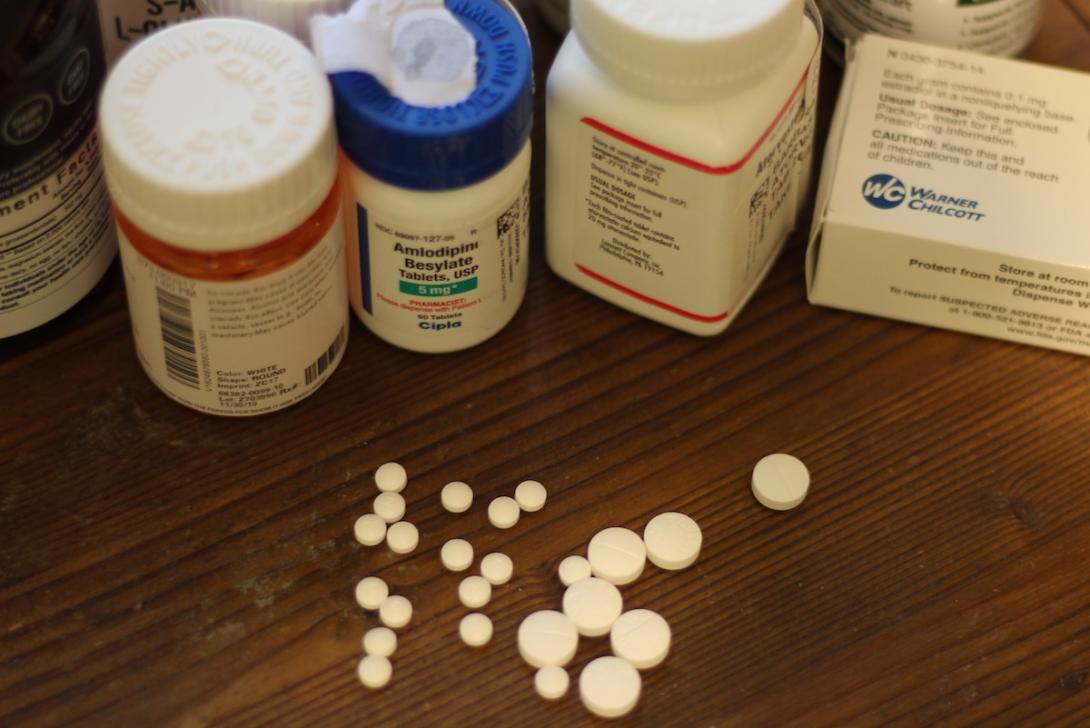
Part of a lawsuit in federal court that alleges a conspiracy among front groups for major pharmaceutical companies to keep low-priced drugs unavailable may move to a Portland court venue because one of the defendants is based in Oregon.
New York-based PharmacyChecker.com in 2019 sued the National Association of Boards of Pharmacy, Oregon-based LegitScript and three other groups, alleging they run a coordinated campaign to unfairly stifle competition and artificially inflate the costs of prescription drugs while providing misinformation to discourage people from using international online pharmacies that offer lower-cost drugs.
The case had dragged on for two years in the federal court system’s Southern District of New York. In a May motion, PharmacyChecker.com seeks a motion to sever LegitScript from the underlying case and move it to Oregon’s federal court district. That move comes after the federal court found that LegitScript was not subject to the York York district’s jurisdiction.
PharmacyChecker.com runs an accreditation service for international pharmacies and provides price comparisons so users can shop online for prescriptions.
That company says LegitScript is a competitor. LegitScript provides third-party certification to health care companies, including pharmacies, telemedicine providers, and addiction treatment providers. LegitScript, in its online profile, says it has “earned the trust” of regulatory agencies, credit card companies and search engines and e-commerce platforms, including Visa, Google, Bing, Facebook and Amazon.
“Transfer to the District of Oregon is appropriate because PharmacyChecker.com’s claim against LegitScript could originally have been brought in the District of Oregon, where personal jurisdiction over LegitScript is indisputable,” the plaintiffs argue in the motion, which has not yet received a ruling. “Severing and transferring the claim as to LegitScript is also in the interests of justice. First, PharmacyChecker.com cannot proceed with its claim against LegitScript in (the New York court) — its chosen forum — because the Court lacks personal jurisdiction. The District of Oregon indisputably has jurisdiction that is lacking here. It is also LegitScript’s home forum and is thus most convenient to LegitScript.”
Evan Smith, LegitScript's general counsel, said the company does not comment on pending litigation.
The defendants in the lawsuit have filed responses that deny a conspiracy to censor PharmacyChecker.com or rank its results lower in search engines.
The case’s potential move to Oregon would give the state’s federal court district a chance to weigh in on a case involving the high cost of pharmaceuticals.
LegitScript, a Portland firm, was founded in 2007 by John Horton, a former Multnomah County prosecutor who has worked for the White House Office of National Drug Control Policy, according to a 2012 profile of LegiScript that ran in the Oregonian. LegitScript monitors online drug-selling entities, including those that operate outside U.S. borders and provides the information to entities, including Food and Drug Administration investigators, Microsoft and Google.
The civil lawsuit involves the world of international pharmacies and their reach through the Internet to people struggling to find safe, lower-priced pharmaceuticals.
The federal government strictly regulates the importation of wholesale prescription drugs. However, U.S. residents can usually order from foreign pharmacies up to a three-month supply of prescription drugs for personal use, even though that’s technically illegal.
The plaintiff, PharmacyChecker.com, runs an online pharmacy verification program that allows users to find accredited online pharmacies and compare drug prices, including for Canadian pharmacies. For instance, the company said, the diabetes medication Januvia is nearly $500 for a month’s supply in the United States but just $114 from a Canadian pharmacy and even lower in licensed pharmacies in other nations. Online pharmacies accredited through PharmacyChecker’s verification program handle prescription drug orders that require a provider’s prescription.
The lawsuit’s alleged conspiracy centers on a “blacklist” of “not recommended sites” that Internet search providers Google and Bing use in a way that reduces traffic to PharmacyChecker as well as international online pharmacies the company has certified.
In its complaint, PharmacyChecker.com says its revenue is directly tied to performance and visibility in search engine results, which plummeted in 2019 due to the alleged blacklisting. For example, in February 2019, PharmacyChecker.com pages were in the top three positions in Google searches for phrases related to online pharmacies, the lawsuit says.
With the Google updates, most of PharmacyChecker.com’s top rankings have vanished, the lawsuit says. For example, it’s dropped from being the first result for the search phrase “online pharmacies” to number 90, which the lawsuit says is “effectively out of consumers’ sight.”
The blacklist, created by the National Association of Boards of Pharmacies through a Pfizer grant, lists dangerous pharmacy operators but also dozens of safe sites, PharmacyChecker.com alleges in its lawsuit.
The NABP and the Center for Safe Internet Pharmacies worked together to convince Internet search engines to penalize those sites in search results, the lawsuit alleges.
“The defendants, who are a network of overlapping nonprofit organizations and private firms that are funded or backed by pharmaceutical manufacturers and large pharmacy interests, are using shadow regulation — private agreements with key internet gatekeepers — to manipulate and suppress the information available to consumers seeking information about lowercost, safe prescription medicine,” the lawsuit says. “PharmacyChecker.com has now effectively been excluded from the market as a result of the defendants’ shadow regulation.”
Furthermore, in 2018 the NABP placed PharmacyChecker.com on its blacklist, the lawsuit says, even though the website is not a pharmacy and only provides information, the lawsuit says.
The action means that PharmacyChecker.com’ directory of accredited online pharmacies no longer appears as a link at the top of Google search results, the lawsuit alleges. Through search engine Bing, a warning box now warns users, denies access to the link and instead directs people to information from NABP, the Center for Safe Internet Pharmacies, and LegitScript, all entities named as co-conspirators in the lawsuit.
The lawsuit seeks a jury trial to stop the blacklisting and award unspecified damages for the company’s lost revenue.
You can reach Ben Botkin at [email protected] or via Twitter @BenBotkin1.